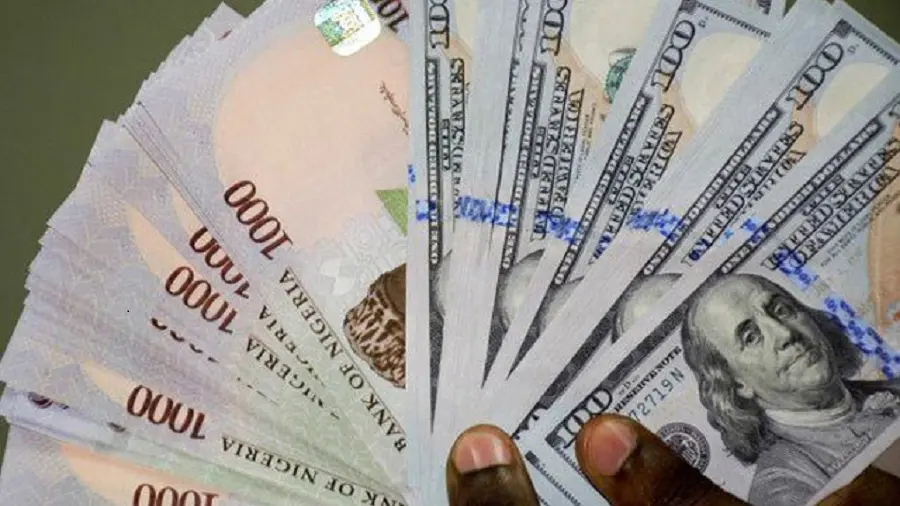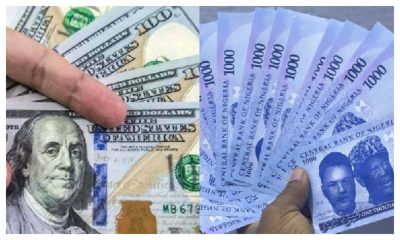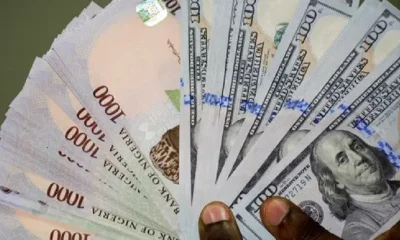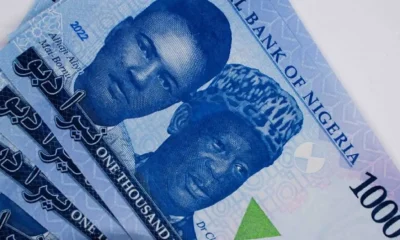BUSINESS
Naira Soars to 15-Month High Against Dollar in Black Market Amid CBN Policy Optimism

The Nigerian Naira has demonstrated a remarkable show of strength against the United States dollar, recording a massive appreciation in the parallel foreign exchange market. On Wednesday, the local currency surged to N1,490 per dollar, a significant gain from the N1,520 reported just a day earlier on Tuesday.
This single-day strengthening, which represents an N30 appreciation, has not been witnessed since June 2024, confirming the currency is trading at its highest level in 15 months on the black market.
Abubakar Alhasan, a Bureau De Change (BDC) operator in Wuse Zone, Abuja, confirmed the dramatic shift, telling a correspondent, “We buy at N1,480 and sell at N1,490 on Wednesday due to lower FX demand.” The reduction in demand for the dollar in the unofficial market is a key indicator that recent monetary and fiscal reforms are finally beginning to restore confidence and liquidity in the official channels.
This market rally follows a cautious but symbolic move by the Central Bank of Nigeria (CBN). On Tuesday, the CBN’s Monetary Policy Committee (MPC) cut the benchmark interest rate (MPR) for the first time in five years, reducing it by 50 basis points to 27 per cent. While interest rate cuts often signal a relaxation of monetary policy, CBN Governor Olayemi Cardoso explained that the decision was based on projections of easing inflation and the sustained strength of the naira, marking a deliberate shift from a long period of aggressive rate hikes aimed solely at curbing runaway inflation.
The policy easing also included a reduction in the Cash Reserve Requirement (CRR) for commercial banks, aimed at improving liquidity and encouraging credit creation for the real sector. Simultaneously, the CBN has been firm in its efforts to streamline the foreign exchange market, clearing validated foreign exchange backlogs and implementing policies—such as the Net Open Position mandate for Deposit Money Banks—to ensure banks offload long currency positions and boost dollar supply.
The cumulative effect of these actions has been the market’s response of lower parallel market demand and a dramatic convergence of exchange rates. At the official Nigerian Foreign Exchange Market (NFEM), the naira saw a marginal drop, settling at N1,488.56 per dollar, down slightly by N1.19 from N1,487.37. Crucially, this movement has shrunk the difference between the official and parallel market rates to a minimal 1.44 per cent. This near-convergence is a significant macroeconomic milestone, indicating reduced arbitrage opportunities and greater transparency in the overall foreign exchange system—a major policy objective of the current administration.
The sustained disinflation recorded over the past five months, alongside the robust appreciation of the naira, suggests that the CBN is achieving its dual goals of price stability and exchange rate management. If this trend is sustained by continued external reserve accretion and adherence to orthodox monetary policies, analysts project a positive outlook for foreign portfolio investments and a moderation in imported inflation, which could ultimately lead to lower costs for consumers.












